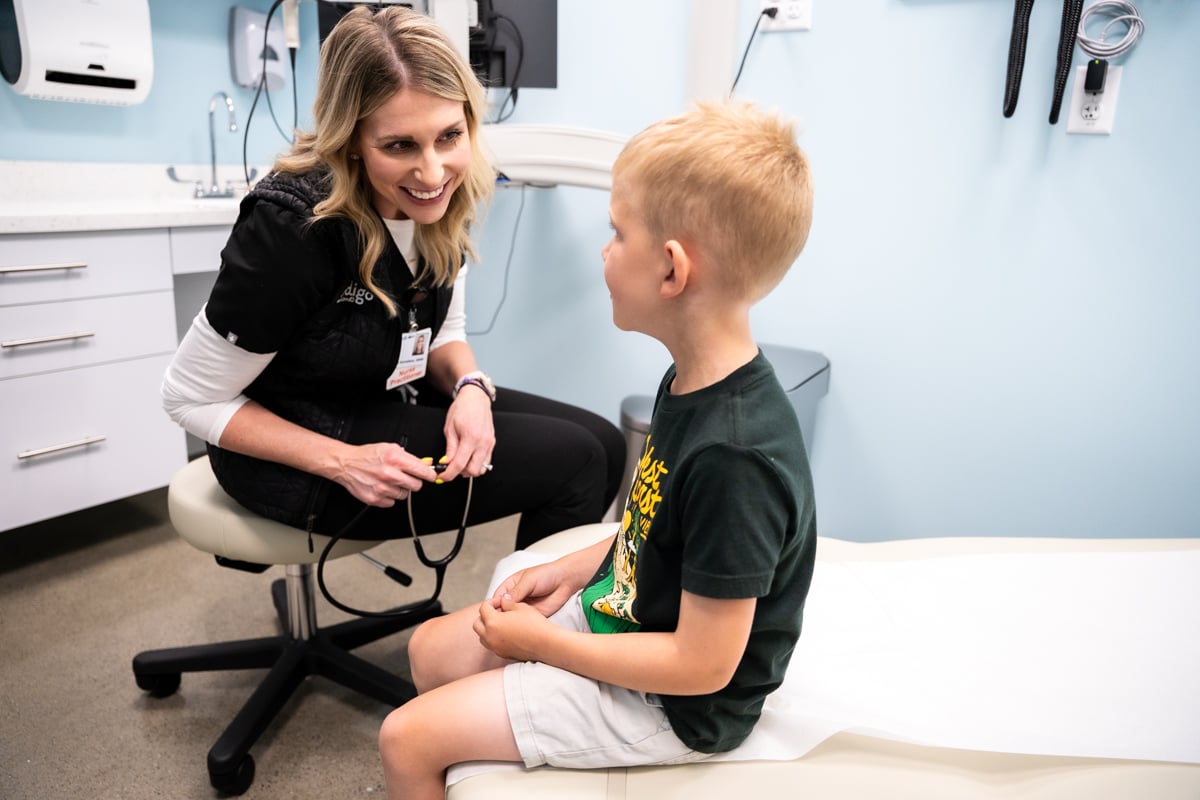Ear infections are nearly a rite of passage in young children. But they aren’t just for kids. Around 20 percent of ear infections happen in adults.
No matter your age, one thing is certain – ear infections are a pain. And when left untreated, they can lead to serious problems.
What causes ear infections in adults?
Infections can happen in any part of the ear, but middle ear infections (otitis media) are the most common. Just like in kids, these infections happen in adults when fluid remains in the Eustachian tubes, the narrow canal that connects the middle ear to the back of the nose. As fluid builds up, it can become a breeding ground for bacteria and viruses.
Some adults are more susceptible to ear infections. You’re more likely to get one if you:
- Suffer from seasonal allergies.
- Have a cold or other upper respiratory infection.
- Smoke or are exposed to smoke.
- Have a weakened immune system.
- Have a chronic condition, such as diabetes, eczema or psoriasis.
Outer ear infections occur in the ear canal, the part of the ear that leads from the outer ear to the eardrum. These infections – sometimes called swimmer’s ear – typically happen during summer months and are often caused by being in contaminated water.
Inner ear infections happen at the end of the ear tubes. These infections are rare and may indicate a serious health condition, such as meningitis.
What are the signs of an ear infection in adults?
Common symptoms of a middle-ear infection in adults include:
- Pain in one or both ears.
- Drainage from the ear.
- Muffled hearing.
- Sore throat.
- Fever.
How can I prevent an ear infection?
Ear infections may be common, but that doesn’t mean you can’t prevent them. Here are a few ways you can keep ear infections at bay:
- Dry ears completely after swimming or taking a shower.
- To manage your allergies, avoid triggers and keep up with allergy medications.
- If you smoke, try quitting. Limit or avoid secondhand smoke when possible.
- Wash hands thoroughly and try to limit contact with people who have colds or other upper respiratory illnesses.
Are there other reasons for ear pain in adults?
Sometimes, adult ear pain can stem from something other than an ear infection. Additional causes of ear pain include:
- The buildup of earwax.
- An object stuck in the ear.
- Arthritis of the jaw.
- Tooth infection.
- Sinus infection.
- Ear injury or a ruptured eardrum.
Drop that swab!
Cotton swabs should never be used to clean the inside of your ear. They not only increase the risk of infection but can also cause injury, such as a ruptured eardrum.
When should I see a doctor for an earache?
Fortunately, ear infections often go away on their own within a couple of days. If your symptoms are mild, home remedies may relieve your discomfort:
- Apply hot or cold compresses to the ear.
- Use over-the-counter pain relievers, such as acetaminophen (Tylenol), ibuprofen (Advil) or naproxen (Aleve).
- Sleep propped up on pillows to encourage fluid in the ear to drain.
If symptoms persist for more than three days or you’re experiencing any new symptoms, such as a fever or loss of balance, it’s important to seek medical care. If left untreated, ear infections can lead to long-term problems, such as:
- Permanent hearing loss.
- Infection that spreads to other parts of the head.
- Paralysis off a nerve in your face.
Indigo Urgent Care makes it easy to get the care you need for your ear discomfort and most other minor illnesses and injuries. Our convenient neighborhood locations are open 8 am to 8 pm, every day. Virtual and in-person appointments are available the same day or the next day with our easy online booking and registration.
An Indigo clinician will evaluate your symptoms and use an otoscope to examine the inside of your ear. If you do have an infection, you’ll receive recommendations for at-home treatment or get a prescription for ear drops or antibiotics, if needed.
If you have an ear infection that comes on suddenly or experiences any of the following symptoms, go to your nearest emergency room for evaluation and treatment:
- Pus or blood draining from the ear
- Swelling or a knot that has formed behind or under your ear
- Difficulty moving parts of your face
- Weakness or lethargy
- Sudden high fever
- Prolonged dizziness
- Loss of balance
- Extreme headaches
- Seizures


